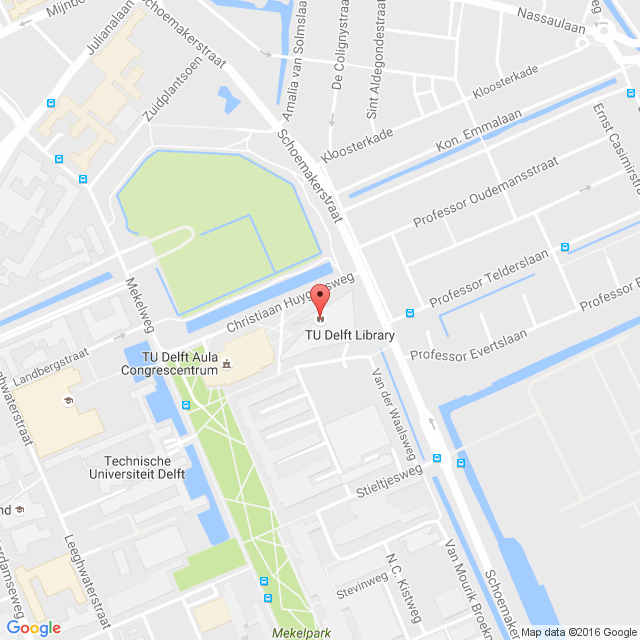Recording: Prometheus’ Problems: Should an engineer work for the military?
Due to current COVID restrictions, this event has a capacity of 30 attendees. Registration required via EventBrite. Please do not arrive before 15.45 hrs. If you have not registered, please do not travel to the campus but watch our event online.
Visitors are kindly asked to wear a wristband with an electronic tag as part of an ongoing research project monitoring mobility within the Library building. The wristband will be issued upon entering the building, and no personal data is required or stored for this research.
Prometheus’ Problems
Think and drink at this philosophical café
Can an algorithm be racist? If a self-driving car causes an accident, who is responsible?
These are the kinds of questions that will be discussed at our brand new philosophical café Prometheus’ Problems! At this monthly event, students, professors and external experts will exchange thoughts about philosophical and ethical themes related to engineering, modern technology and its impact on society. Importantly, the themes are based upon questions put forward by students themselves. A discussion in a comfortable setting, with a drink at hand.
First event on April 28th: ‘Should an engineer work for the military?’
Want to know the answer? Come and join us on Wednesday April 28, 16.00-18.00!
The first philosophical café focuses upon moral questions related to engineering for the military. We invited three speakers who all have their own expertise about this theme: Christine Boshuijzen (UNSW, ADFA), David Abbink (TU Delft) and Frank Slijper (PAX). Each will give a presentation, after which there will be a debate. The public is invited to ask questions and actively participate. The discussion will be moderated by Filippo Santoni de Sio from the section Ethics/Philosophy of Technology of TU Delft.
Speakers
Christine Boshuijzen – van Burken works as senior researcher at the Australian Defense Force Academy (UNSW Canberra/ADFA). She wrote her PhD thesis at the TUDelft and TU Eindhoven, on the role of technology on moral decision making in military operations. Moreover, besides her academic work, she serves as a reserve soldier at the Royal Netherlands Reserve Army.
Should an engineer work for the military? Of course! But only the good ones, as I shall argue. What constitutes a good engineer is up to debate and requires some deeper questioning. I have identified the following three sub-questions that are worth considering. First, should anyone ever work for the military? In other words, will the world be at peace without some form of legally bound, organized use of force? Second, why should engineers work for the military, if at all? Can’t the military operate without engineers? Third, which engineers should work for the military, if at all? This is the question about the virtuous practitioner, or which “character-istics” an engineer should have that works for the military.
Frank Slijper is project leader Arms Trade at peace organisation PAX. The last 25 years he has done extensive research on the international trade in weapons, including research and development of military technology.
Technological innovation is an important source of economic and military power and progress. However, differences between innovation for civilian and military purposes can be blurry, as emerging technologies are often dual-use. This raises questions about the responsibility of research communities for the potential end-uses of their research. In many cases, the ultimate end-uses may not be known when a technology is first developed. Therefore, I will argue that in the case of close collaborations between universities, the military and arms producers, universities should have a clear ethical policy outlining what is acceptable and what not. Moreover, students should be aware of how such collaborations could contribute to the development of lethal technology.
David Abbink is professor in Haptic Human-Robot Interaction at the Department of Cognitive Robotics, Faculty of 3mE, TUDelft. His presentation will be about how to “keep humans in the loop” when it comes to automated technologies, both civilian and military.
“Keeping humans in the loop” is an often-heard requirement for a wide range of automated technologies, both civilian and military. I will argue that the responsible development of human-automation interaction that keeps humans in the loop requires a systemic perspective, which is at odds with currently dominant scientific disciplinary inquiry. I will use examples from my own research background in human-automation interaction, and will link societal narratives to my personal considerations in pursuing research topics (and funding) – and to those of thinkers from cybernetics, an interdisciplinary field that arose after the second world war.
Attending the event
The first session is on Wednesday April 28, 16.00-18.00. We aim for it to take place at the TU Delft Library on Campus, and live-stream the event as well. If due to corona related measures we need to change this, we will let you know.
Prometheus’ Problems is an initiative of Studium Generale and the Philosophy/Ethics of Technology section (TBM-VTI). Thanks to Lester Lardenoye, Sanne Helbers, Maud Adams en Trijsje Franssen!
Please note that this event will be livestreamed and recorded for later viewing.


